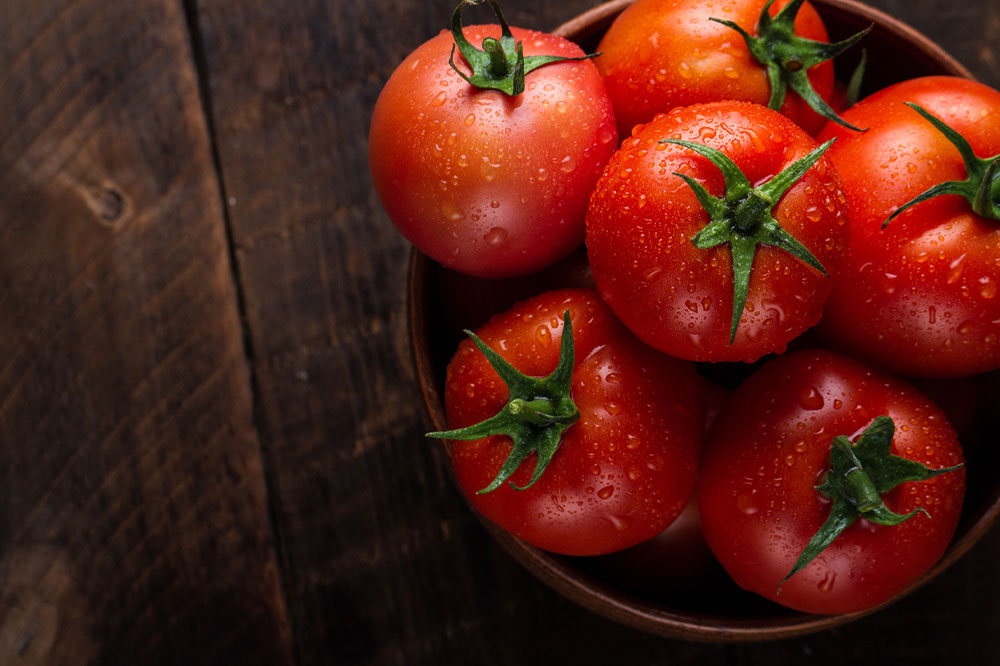Prostate Cancer – Foods to Eat and Avoid

Prostate cancer is a common, uncomfortable type of cancer among men. Researchers suggest that it may affect one in seven men during their lifetime. While early detection is essential for effective treatment and recovery, many men don’t know enough about it. Therefore, it is important to know the symptoms and maintain a balanced food plan to reduce cancer risk. This article will discuss prostate cancer basics, its signs and symptoms, and food recommendations.
What is prostate cancer?
Prostate cancer is a health condition wherein cells in the prostate, a gland located underneath the bladder and near the rectum in men, grow abnormally and out of control. Such uncontrollable growth can lead to health complications such as metastasis (spreading cancer cells throughout other organs). Men over 50 should get screened regularly for prostate cancer to identify potential health risks early on.
Prostate cancer is typically treated with surgery, clinical trials for prostate cancer, radiation therapy, and chemotherapy. In addition, healthy lifestyle choices such as eating nutritious meals and exercising can greatly reduce the risk of developing the disease.
Early signs of prostate cancer
Before learning about foods that may aggravate or alleviate the cancer symptoms, let’s find out a few early-stage symptoms of prostate cancer:
- Frequent urination, especially at night
- Difficulty starting or stopping urination
- Weak or interrupted urine flow
- Pain or burning sensation during urination
- Blood in the semen or urine
- Pain in the hips, lower back, or thighs
- Difficulty getting or maintaining an erection
- Loss of bladder control
Foods to manage prostate cancer
Tomatoes
Tomato-based products such as sauce, puree, or ketchup may offer a health benefit for preventing and managing prostate cancer. Studies have shown that tomatoes’ antioxidant properties and phytochemicals (plant compounds) reduce the risk of prostate cancer.
Tomatoes also contain lycopene, an effective organic compound for decreasing inflammation and cell damage caused by carcinogens (substances/radiations causing cancer). The health benefits of consuming tomatoes may be even more pronounced when cooked, especially if they are processed into soups or sauces.
Green tea
Green tea is a healthful beverage known for its many health benefits, including the potential to manage prostate cancer. It contains significant amounts of health-promoting compounds, such as vitamins and antioxidants, which are beneficial in reducing inflammation associated with cancers. Additionally, recent studies have shown that the catechins in green tea may interfere with cancer cells’ ability to divide and spread throughout the body.
Pomegranates
Pomegranates effectively fight inflammation, the key symptom of this health condition. Packed with antioxidants, vitamin C, and carotenoids (natural pigments), this sweet treat may help remove dangerous toxins, reduce cancer symptoms, and help slow its growth. Studies have suggested that pomegranate juice can slow the progress of the disease by preventing cells from growing and multiplying.
Fish
A meal plan rich in omega-3 fatty acids, specifically from cold-water fish, can reduce the risk of developing prostate cancer in men. Omega-3s are also known to reduce inflammation and may limit the spread and growth of cancer cells. Evidence indicates that omega-3s from fish assist with prostate cancer by inhibiting tumor cell vascularization (cancer cells replicating body vessels). It helps slow down the development of certain tumors.
Broccoli
Broccoli’s fiber and antioxidants can help reduce inflammation in the body and reduce damage to cells caused by free radicals (unstable atoms). These elements often contribute to increased risks of cancer. The active compound in broccoli, sulforaphane, bolsters its anti-cancer health benefits by targeting tumor cells.
Foods to avoid
Spicy foods
Spicy foods are often identified as a potential factor for worsening prostate cancer. This is due to the potential increase in inflammation that can worsen with the intake of certain spices and substances. Capsaicin (a compound in chilies) has antimicrobial properties worsening cancer. It is linked to different clinical trials for prostate cancer.
Sugary baked goods
Sweet-baked products can have a detrimental effect on health, specifically for men with prostate cancer. Eating processed sugar in the form of cakes and cookies can increase inflammation and encourage cancer growth. Excessive inatke of sugar-rich foods may also reduce the effectiveness of treatments due to its negative impact on hormone levels (increasing blood sugar).
Dairy products
High intake of dairy products may be responsible for raising the health risks associated with prostate cancer. Dairy products are often rich in hormones, saturated fats, and other components that may affect health and increase inflammation. In addition, many types of cheese have been linked to higher risks of prostate cancer due to the presence of large amounts of carcinogens.
Additionally, many dairy products contain high levels of insulin-like growth factor, which is thought to speed up the development or worsen existing cases of prostate cancer.
Saturated fats
Eating too many saturated foods can negatively impact those diagnosed with prostate cancer. Studies suggest that meal plans high in saturated fatty acids can worsen prostate cancer by triggering cellular signals that slow down the process of cell death. Additionally, these fats may induce inflammation associated with an increased risk of tumor growth.
Therefore, health professionals often advise against eating high-saturated foods such as red meat and dairy products for men with prostate cancer. They also recommend plant-based sources for their nutritional components and lower saturated fat content.
While prostate cancer can have adverse effects to the body, early diagnosis and treatment are often successful for many. It is essential to assess the risk factors, such as age and family history, to get regular screenings, and to manage any symptoms. Maintaining a well-balanced meal routine (rich in fruits and vegetables), and avoiding processed and saturated fatty foods may reduce risk factors for developing prostate cancer. If you are experiencing signs or genetic predispositions associated with prostate cancer, consulting a professional physician can help progressively manage the condition.











